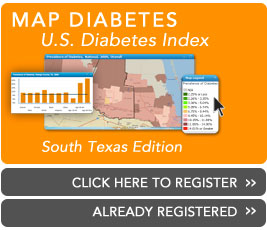Posted by Staff
News
Thursday, June 20th, 2013
JAMA Intern Medicine: June 17, 2013
Importance Red meat consumption has been consistently associated with an increased risk of type 2 diabetes mellitus (T2DM). However, whether changes in red meat intake are related to subsequent T2DM risk remains unknown.
Objective To evaluate the association between changes in red meat consumption during a 4-year period and subsequent 4-year risk of T2DM in US adults.
Design and Setting Three prospective cohort studies in US men and women.
Participants We followed up 26 357 men in the Health Professionals Follow-up Study (1986-2006), 48 709 women in the Nurses’ Health Study (1986-2006), and 74 077 women in the Nurses’ Health Study II (1991-2007). Diet was assessed by validated food frequency questionnaires and updated every 4 years. Read more
Posted by Staff
News
Thursday, June 20th, 2013
Diabetes Care June 17, 2013
OBJECTIVE The relation of breakfast intake frequency to metabolic health is not well studied. The aim of this study was to examine breakfast intake frequency with incidence of metabolic conditions.
RESEARCH DESIGN AND METHODS Analysis of 3,598 participants from the community-based Coronary Artery Risk Development in Young Adults (CARDIA) study who were free of diabetes in the year 7 examination when breakfast and dietary habits were assessed (1992–1993) and participated in at least one of the five subsequent follow-up examinations over 18 years. Read more
Posted by Staff
News
Thursday, June 20th, 2013
Diabetes Care June 11, 2013
OBJECTIVE We sought to determine whether food insecurity is associated with worse glycemic, cholesterol, and blood pressure control in adults with diabetes.
RESEARCH DESIGN AND METHODS We conducted a cross-sectional analysis of data from participants of the 1999–2008 National Health and Nutrition Examination Survey. All adults with diabetes (type 1 or type 2) by self-report or diabetes medication use were included. Food insecurity was measured by the Adult Food Security Survey Module. The outcomes of interest were proportion of patients with HbA1c >9.0% (75 mmol/mol), LDL cholesterol >100 mg/dL, and systolic blood pressure >140 mmHg or diastolic blood pressure >90 mmHg. We used multivariable logistic regression for analysis. Read more
Posted by Staff
News
Thursday, June 20th, 2013
Diabetes Care June 11, 2013
OBJECTIVE We aimed to determine the associations of waist circumference (WC) and BMI with all-cause mortality among patients with diabetes.
RESEARCH DESIGN AND METHODS The sample included 847 white and 553 African American patients (18–69 years of age) with diabetes. Height, weight, and WC were measured, and the BMI (kg/m2) was calculated. Cox regression was used to analyze the associations of BMI and WC with mortality, adjusting for age, sex, race, examination year, smoking status, alcohol consumption, and physical activity. Hazard ratios (HRs) are expressed per standard deviation of each independent variable. Read more
Posted by Staff
News
Thursday, June 20th, 2013
Diabetes Care June 11, 2013
OBJECTIVE The objective of this study was to evaluate the relationship between childhood and adult secondhand smoke and type 2 diabetes.
RESEARCH DESIGN AND METHODS We conducted a prospective cohort study among 37,343 French women from the E3N-EPIC (Etude Epidémiologique auprès des femmes de la Mutuelle Générale de l’Education Nationale-European Prospective Investigation into Cancer and Nutrition) who never smoked and who were free of type 2 diabetes, cancer, or cardiovascular disease at baseline in 1992. Self-reported childhood secondhand smoke exposure was defined as having at least one parent who smoked. Adult secondhand smoke was defined as the sum of self-reported hours recorded at baseline of exposure to tobacco smoke from a spouse who smoked (or domestic close contact) and from outside the home. Read more
Posted by Staff
Minority Diabetes Reports
Thursday, June 20th, 2013
Red Orbit: June 18, 2013
Researchers have developed a risk assessment scoring system that they believe may better identify certain adults-– especially African Americans-– at high risk of developing type 2 diabetes, heart disease and stroke than does the current system of diagnosing the metabolic syndrome. The results will be presented Tuesday at The Endocrine Society’s 95th Annual Meeting in San Francisco.
“We have found that the metabolic syndrome manifests differently between males and females and among various racial-ethnic groups,” said study co-author Mark DeBoer, MD, associate professor at the University of Virginia, Charlottesville. “Because current diagnostic criteria for the metabolic syndrome do not consider gender and race, some high-risk individuals are not meeting the criteria for the metabolic syndrome.” Read more
Posted by Staff
Minority Diabetes Reports
Thursday, June 20th, 2013
Diabetes Care June 18, 2013
OBJECTIVE To describe the burden of dysglycemia—abnormal glucose metabolism indicative of diabetes or high risk for diabetes—among U.S. women of childbearing age, focusing on differences by race/ethnicity.
RESEARCH DESIGN AND METHODS Using U.S. National Health and Nutrition Examination Survey data (1999–2008), we calculated the burden of dysglycemia (i.e., prediabetes or diabetes from measures of fasting glucose, A1C, and self-report) in nonpregnant women of childbearing age (15–49 years) by race/ethnicity status. We estimated prevalence risk ratios (PRRs) for dysglycemia in subpopulations stratified by BMI (measured as kilograms divided by the square of height in meters), using predicted marginal estimates and adjusting for age, waist circumference, C-reactive protein, and socioeconomic factors. Read more



























